
MediGence is offering immense facilities for your medical journey such as:
With us, you are sure to receive all the benefits at competitive prices which is a better choice than paying actual hospital costs. PDA stands for Patent Ductus Arteriosus, which is a minimally invasive procedure to close or block the ductus arteriosus. Specialized cardiac doctors (Paediatric cardiac) use a procedure known as cardiac catheterization to place a small device in the vessel that closes the PDA., We have outstanding options with all kinds of benefits for you to get the PDA Device closure surgery done in Fortis Hospital, Shalimar Bagh, India.
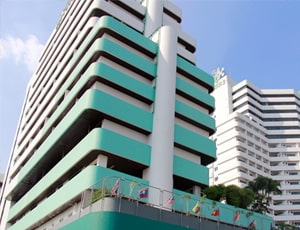
Phyathai 2 International Hospital located in Bangkok, Thailand is accredited by JCI. Also listed below are some of the most prominent infrastructural details:
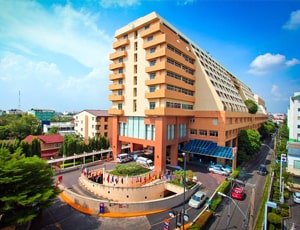
Vejthani Hospital located in Bangkok, Thailand is accredited by NABH, NABL. Also listed below are some of the most prominent infrastructural details:
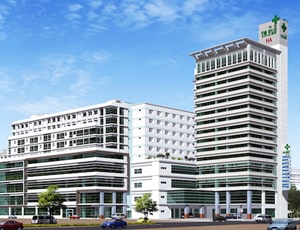
Yanhee International Hospital located in Bangkok, Thailand is accredited by JCI. Also listed below are some of the most prominent infrastructural details:

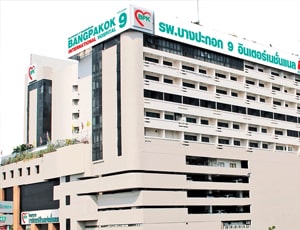
Bangpakok 9 International Hospital located in Bangkok, Thailand is accredited by JCI. Also listed below are some of the most prominent infrastructural details:
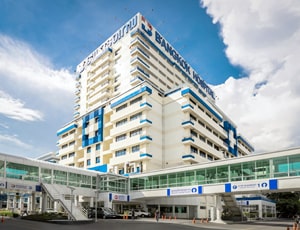
Bangkok Hospital located in Bangkok, Thailand is accredited by JCI. Also listed below are some of the most prominent infrastructural details:
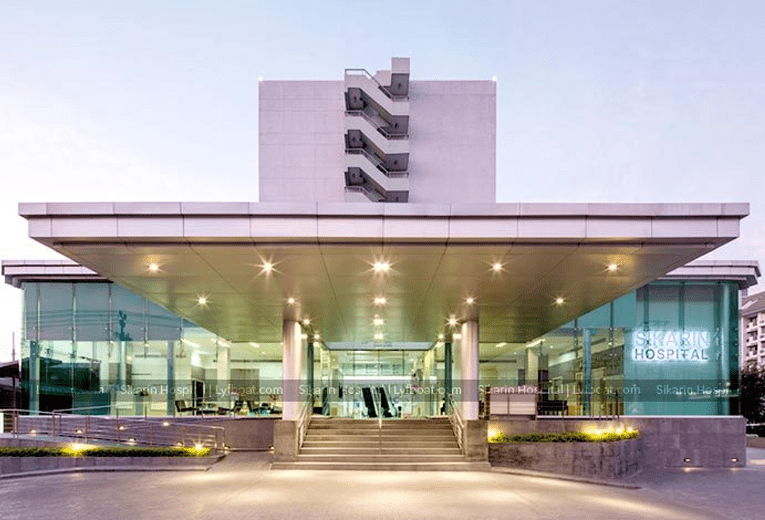
Apart from in-detail treatment procedures available, Sikarin Hospital located in Bangkok, Thailand has a wide variety of facilities available for International Patients. Some of the facilities which are provided by them are Airport Transfer, Choice of Meals, Interpreter, SIM, TV inside room. Also listed below are some of the most prominent infrastructural details:
It has also received many awards and certifications and some of them are:
The various clinics and centers of Sikarin Hospital are as follows:
The medical technology present in Sikarin Hospital is outlined here:
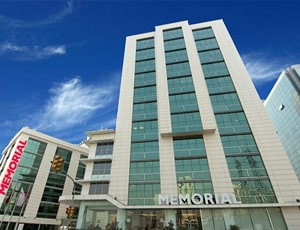
Types of PDA Closure in Memorial Atasehir Hospital and its associated cost
| Treatment Option | Approximate Cost Range (USD) | Approximate Cost Range (TRY) |
|---|---|---|
| PDA Closure(Overall) | 8429 - 13582 | 251480 - 406544 |
| Transcatheter PDA Closure | 8530 - 11130 | 257616 - 335541 |
| Surgical PDA Closure | 9044 - 13255 | 266268 - 404996 |
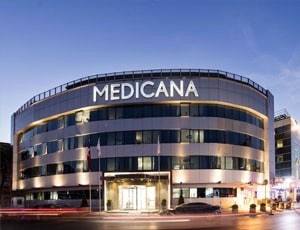
Types of PDA Closure in Medicana Bahcelievler Hospital and its associated cost
| Treatment Option | Approximate Cost Range (USD) | Approximate Cost Range (TRY) |
|---|---|---|
| PDA Closure(Overall) | 8451 - 13722 | 251199 - 411633 |
| Transcatheter PDA Closure | 8305 - 11205 | 250852 - 331814 |
| Surgical PDA Closure | 8988 - 13458 | 265313 - 399929 |
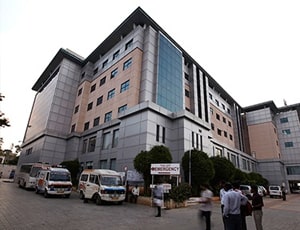
Types of PDA Closure in BGS Gleneagles Global Hospitals and its associated cost
| Treatment Option | Approximate Cost Range (USD) | Approximate Cost Range (INR) |
|---|---|---|
| PDA Closure(Overall) | 5165 - 9190 | 419614 - 732907 |
| Transcatheter PDA Closure | 5030 - 7927 | 421243 - 645128 |
| Surgical PDA Closure | 5633 - 8920 | 459835 - 736215 |
DOCTORS IN 14 SPECIALITIES
FACILITIES & AMENITIES
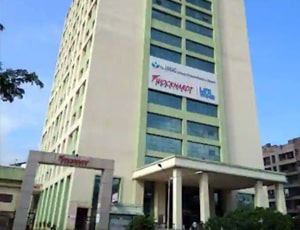
Types of PDA Closure in Wockhardt Hospital, Umrao and its associated cost
| Treatment Option | Approximate Cost Range (USD) | Approximate Cost Range (INR) |
|---|---|---|
| PDA Closure(Overall) | 4586 - 8082 | 373394 - 664488 |
| Transcatheter PDA Closure | 4577 - 7106 | 373224 - 585476 |
| Surgical PDA Closure | 5051 - 8129 | 416061 - 664591 |
DOCTORS IN 13 SPECIALITIES
FACILITIES & AMENITIES
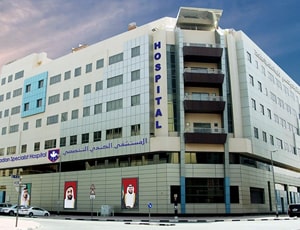
Canadian Specialist Hospital located in Dubai, United Arab Emirates is accredited by JCI. Also listed below are some of the most prominent infrastructural details:

Types of PDA Closure in Indraprastha Apollo Hospital and its associated cost
| Treatment Option | Approximate Cost Range (USD) | Approximate Cost Range (INR) |
|---|---|---|
| PDA Closure(Overall) | 5164 - 9162 | 420885 - 747857 |
| Transcatheter PDA Closure | 4991 - 7910 | 409117 - 643735 |
| Surgical PDA Closure | 5738 - 8874 | 465559 - 750774 |
DOCTORS IN 14 SPECIALITIES
FACILITIES & AMENITIES
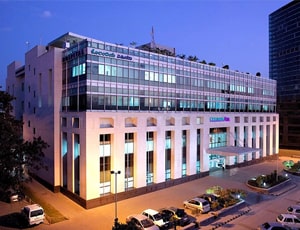
Types of PDA Closure in Manipal Hospital, Yeshwantpur and its associated cost
| Treatment Option | Approximate Cost Range (USD) | Approximate Cost Range (INR) |
|---|---|---|
| PDA Closure(Overall) | 5159 - 9067 | 420822 - 741963 |
| Transcatheter PDA Closure | 5014 - 8036 | 422571 - 645202 |
| Surgical PDA Closure | 5546 - 8803 | 458473 - 751919 |
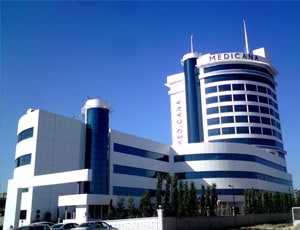
Types of PDA Closure in Medicana Konya Hospital and its associated cost
| Treatment Option | Approximate Cost Range (USD) | Approximate Cost Range (TRY) |
|---|---|---|
| PDA Closure(Overall) | 8571 - 13617 | 254553 - 399273 |
| Transcatheter PDA Closure | 8257 - 11498 | 248870 - 335555 |
| Surgical PDA Closure | 9066 - 13343 | 267418 - 405116 |
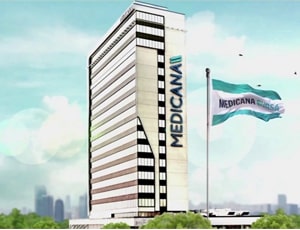
Types of PDA Closure in Medicana Bursa Hospital and its associated cost
| Treatment Option | Approximate Cost Range (USD) | Approximate Cost Range (TRY) |
|---|---|---|
| PDA Closure(Overall) | 8502 - 13505 | 256144 - 414070 |
| Transcatheter PDA Closure | 8342 - 11478 | 259816 - 343690 |
| Surgical PDA Closure | 8871 - 13378 | 271993 - 401133 |
Patent ductus arteriosus (PDA) is a congenital heart condition where there's an ongoing opening between two major blood vessels. This happens when the usual closure of a vessel, called the “ductus arteriosus”, doesn't occur after birth. While a small PDA may not pose issues and might not need treatment, a larger, untreated one can lead to complications like weakened heart muscles and heart failure. Treatment options include regular checkups, medications, or a procedure to close the opening if necessary.
The exact reason why DA remains open (patent) in some infants is still unknown. However, girls are twice as likely to suffer from PDA as boys. Additionally, PDA may occur in combination with other heart defects as well.
PDA, if left untreated, may lead to several complications. Because of the flow of oxygenated blood from the aorta to the pulmonary artery and the mixing of blood, the vessels of the lungs have to handle a large amount of blood. The larger the volume of blood that enters the pulmonary artery, the greater they have to cope with the increased pressure. This may lead to long-term damage to the lungs.
Patent Ductus Arteriosus (PDA) can be classified into different types based on various factors such as size, clinical presentation, and associated conditions. The primary types include:
The classification helps healthcare professionals tailor treatment plans based on the specific characteristics and needs of individuals with Patent Ductus Arteriosus.
PDA closure is performed under the influence of a general anesthetic (GA) using the heart catheterization procedure. During the closure, the surgeon places a closure device into the catheter. A typical PDA closure device is made up of mesh and metal material. It is a short tube with discs of different sizes on both ends. The device is folder before its insertion into the catheter.
The device is moved out of the catheter upon reaching the right place. One of the appropriate discs opens up when the device is moved out of the catheter. It acts like a plug and seals off the PDA, stopping the flow of oxygenated blood to the pulmonary artery.
The catheter is usually inserted into a blood vessel in the groin region. The catheter is gently moved up to reach the site of PDA. The closure device is threaded through to reach the PDA site and is placed in the targeted position. Once the device is in place, the catheter is withdrawn and the site of catheter insertion is bandaged.
The procedure takes one to three hours to complete. As soon as the procedure is over, the child is transferred to the recovery room and is kept there as long as the effect of the GA fades off. Most of the children are discharged on the same day as the PDA closure procedure. However, they will be required to stay in the hospital for at least four to six hours after the surgery.
Some children, however, will be required to stay in the hospital overnight. They are transferred to the inpatient unit after the effect of the GA is over. A chest X-ray is conducted the next day in the case of all patients to check the position of the closure device. Children who are discharged on the same day of the procedure must be brought to the hospital again the next morning for an X-ray.
The surgeon may prescribe a few antibiotics after the surgery to prevent heart infection known as infectious endocarditis. It is common for premature infants or infants with larger PDA to become tired of feeding. Therefore, care must be taken to high-calorie formula or breast milk them for normal growth and development.
Ask your healthcare adviser for the best multiple options and choose the one that meets your expectations
The cost of PDA Closure in Thailand may differ from one medical facility to the other. The cost quoted by some of the best hospitals for PDA Closure in Thailand generally covers the pre-surgery investigations of the patient. Typically, the package cost of PDA Closure in Thailand includes the expenses related to the surgeon's fee, anesthesia, hospital, meals, nursing and ICU stay. Stay outside the package duration, post-operative complications and diagnosis of a new condition may further increase the PDA Closure cost in Thailand.
PDA Closure in Thailand is offered by multiple hospitals across the country. Some of the best hospitals for PDA Closure in Thailand include the following:
After PDA Closure in Thailand, the patient is supposed to stay in guest house for another 18 days. This is important to ensure that the surgery was successful. During this time, control and follow-up tests take place to check for medical fitness.
Apart from the PDA Closure cost, the patient may have to pay for additional daily expenses such as for guest house after discharge and meals. These charges starts from USD 50 per person.
Some of the cpopular cities in Thailand that offer PDA Closure include the following:
There are many PDA Closure surgeons who offer video telemedicine consultation to patients who need this treatment. Some of them include the following:
| Doctor | Cost | Schedule Your Appointment |
|---|---|---|
| Dr. Vichai Benjacholamas | USD 81 | Schedule Now |
The average duration of stay at the hospital after PDA Closure is about 3 days for proper care and monitoring. This phase is important to ensure that the patient is recovering well and is clinically stable. During this time, several tests are performed before the patient is deemed suitable for discharge.
There are more than 5 hospitals that offer PDA Closure in Thailand. These clinics have propoer infrastructure as well as offer good quality of services when it comes to PDA Closure Apart from good services, the hospitals are known to follow all standard and legal guidelines as dictated by the local medical affairs body or organization.
Some of the most sought after medical specialists for PDA Closure in Thailand are: